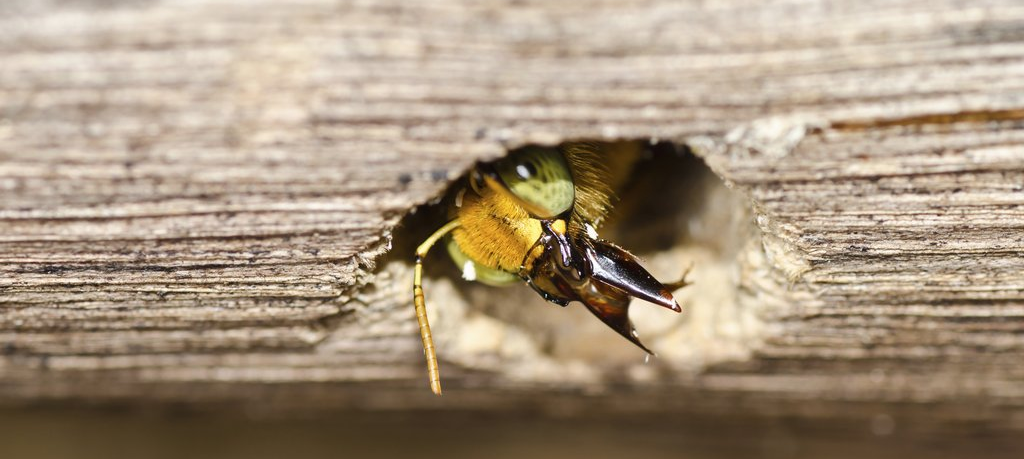
Carpenter Bees are a major issue for North American homeowners every Spring. Their favorite targets are decks, especially railings and posts. The Carpenter Bee issue was once localized to the Southeastern United States, but climate change is pushing the species further North each year.
How Do Carpenter Bees Do Their Damage, Actually?
Contrary to popular belief, Carpenter Bees don’t actually eat wood, they just chew through it to build nests for their unborn babies. Carpenter Bees have sharp teeth and mow through today’s most common decking materials. This means composites like Trex, as well as soft lumber products including Pressure Treated Pine (PT), Douglas Fir and Western Red Cedar. They drill perfectly round holes through the face of wood, and then turn 90 degrees to bore tunnels. Inside these tunnels they plant larvae.
Sometimes these larvae hatch, at which point they fly off to ruin other peoples’ decks. But more often than not, Woodpeckers sniff out the nests and peck through the wood to snag the larvae for food. This creates even bigger holes in your wood, often enough to create structural issues.
Options for Dealing with Carpenter Bees
So how do you deal with them? If you already have carpenter bees nesting in your wood, the only way to stop them from spreading (and ward off woodpeckers) is by spraying chemical insecticides to kill the larvae and ward off future chewing. If you don’t have holes yet, but your deck is made of composite, plastic or softwood decking, then it’s probably only a matter of time, so many people spray such insecticides preventively.
These insecticides are based on Lambda-Cyhalothrin, a dangerous, restricted-use chemical that is harmful to children and the environment on many levels. The biggest downside, however, is that it also kills honeybees, which have seen their population decline dramatically in recent years. And of course, even if you do spray such chemicals, you still have to re-apply repeatedly and on an annual basis.
If you want to make your outdoor living space permanently immune to carpenter bees, without harmful chemicals, you need to build with a naturally insect-resistant hardwood, like Black Locust. Black Locust is one of the hardest, strongest, and most insect-resistant woods on Earth. Its natural characteristics make it impervious to Carpenter Bees, even without insecticides. As Carpenter Bees take over North America, look to Black Locust (as well as Eastern Juniper, Sassafras and Black Walnut) for Decking, Posts, Siding, Fascia and Soffit Boards.

